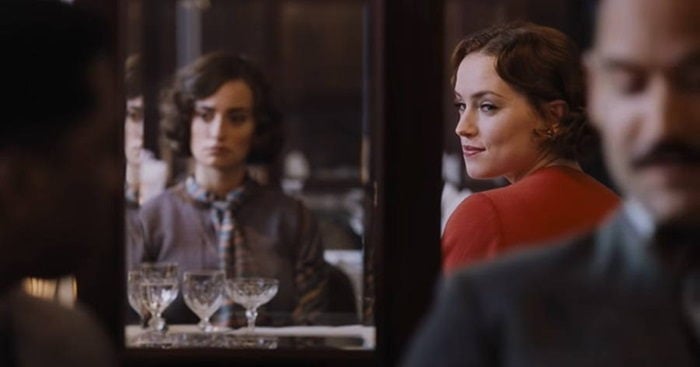The ending of Murder on the Orient Express is a pivotal and suspenseful moment in the classic 1974 film adaptation of Agatha Christie's famous novel. Directed by Sidney Lumet, this murder mystery has been captivating audiences for decades. In the story, renowned detective Hercule Poirot, portrayed by Albert Finney, must solve a murder that occurs on the luxurious Orient Express train. With a compelling ensemble cast and intricate plot, the film builds up to a climactic and surprising ending.

Murder on the Orient Express film begins with Hercule Poirot embarking on the Orient Express, a luxurious and famous train journey that travels from Istanbul to Calais. While on board, a murder takes place. Ratchett, a wealthy American, is found dead in his compartment, and Poirot is asked to investigate the murder. Poirot, a meticulous and brilliant detective, agrees to take on the case.
Throughout the investigation, Poirot interviews the various passengers and uncovers a web of secrets, lies, and suspicious behavior. Each passenger has a motive, and as Poirot delves deeper into the case, he uncovers connections between the passengers that reveal a complex and compelling narrative. As he pieces together the puzzle, he realizes that many of the passengers on the train are not who they claim to be, and they all have a reason to want Ratchett dead.
Poirot's investigation uncovers several key pieces of evidence:
The Initial Crime Scene: The murder occurs in Ratchett's compartment. Poirot examines the crime scene and the physical evidence. He notes that there are multiple stab wounds, indicating a passionate and intense crime. The murder weapon is later revealed to be a knife with a distinctive handle.
The Passenger List: Poirot carefully studies the list of passengers on the train. He learns about their backgrounds, connections, and possible motives. The passengers include a diverse group of characters, each with their own secrets and reasons to be on the train.
Ratchett's True Identity: Poirot discovers that Ratchett is not who he claims to be. In fact, he is revealed to be Cassetti, a notorious kidnapper responsible for a heinous crime involving a child. This revelation adds a layer of complexity to the case, as it's clear that many people would want revenge on Cassetti for his past actions.
The Mysterious Armstrong Case: Poirot learns about a previous crime known as the Armstrong Case, in which a child was kidnapped and murdered. This case is significant because many of the passengers on the train are connected to it in various ways. This connection suggests that the murder on the Orient Express might be an act of revenge related to the Armstrong Case.
As Poirot continues to interview the passengers and gather evidence, the tension on the train grows. The passengers become increasingly nervous and agitated as they realize that their secrets are being uncovered. The detective's attention to detail and his famous "little grey cells" are put to the test as he pieces together the puzzle.
As Murder on the Orient Express reaches its climax, Poirot calls all the passengers together to reveal his findings and his theory about the murder. He explains that each passenger had a motive to kill Ratchett/Cassetti because of his involvement in the Armstrong Case. They had all suffered the consequences of his actions, and the murder was a form of collective justice.
Here's how the ending unfolds:
The Revelation: Poirot reveals that Ratchett is, in fact, Cassetti, the man responsible for the Armstrong Case. He also reveals the connections between the passengers and their roles in the case. They include the child's mother, her governess, and others who were affected by the tragedy.
The Plan: Poirot explains that the passengers hatched a plan to murder Cassetti. Each passenger took turns to stab him to ensure that no one could be definitively identified as the killer. This plan was their way of avenging the child's death, which they believed Cassetti had caused through his actions.

The Decision: Poirot is faced with a moral and ethical dilemma. On one hand, he is a detective whose duty is to uphold the law and bring criminals to justice. On the other hand, he recognizes that the passengers acted out of a sense of justice and retribution for a terrible crime. He is torn between his commitment to justice and his understanding of the passengers' motives.
The Solution: In a surprising twist, Poirot decides to protect the passengers' secret. He explains that he cannot condone their actions, but he understands the moral complexities involved. Instead of turning them over to the authorities, he chooses to present a different solution. He stages the murder scene to make it appear as though an outsider had entered the train and killed Cassetti. This allows the passengers to escape punishment for their crime.
Murder on the Orient Express ends with Poirot providing a false account of the murder to the authorities, and the passengers, now free from suspicion, continue their journey on the Orient Express. Poirot, who is known for his unwavering commitment to justice, is left to grapple with the moral implications of his decision.
The ending of Murder on the Orient Express is a thought-provoking and morally complex conclusion to a gripping mystery. It challenges viewers to consider the boundaries of justice and the moral grey areas that can arise in the pursuit of retribution.






